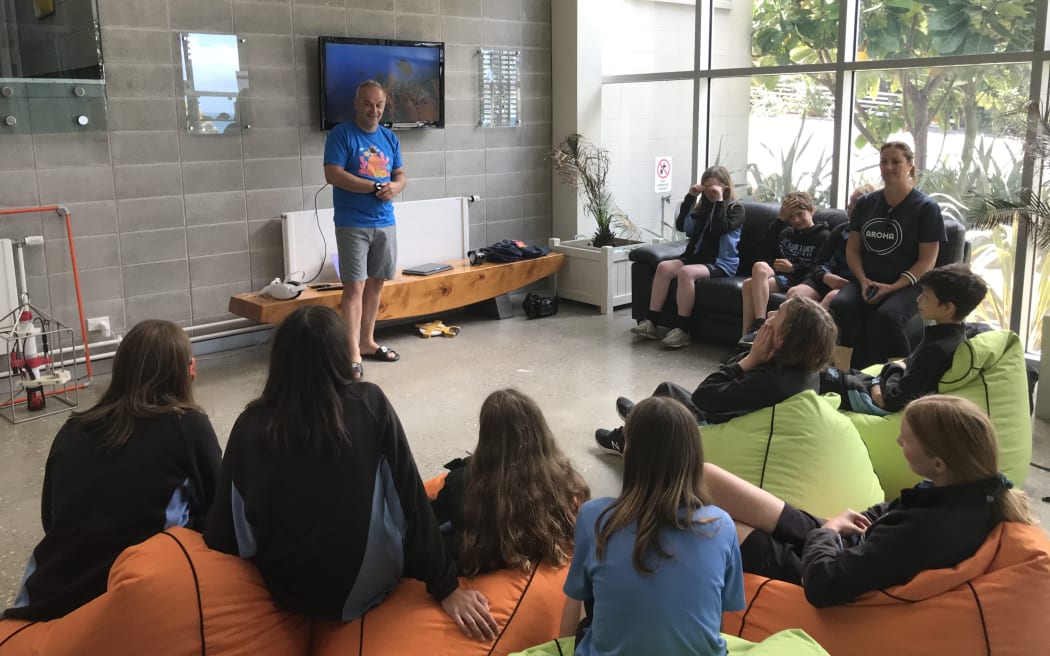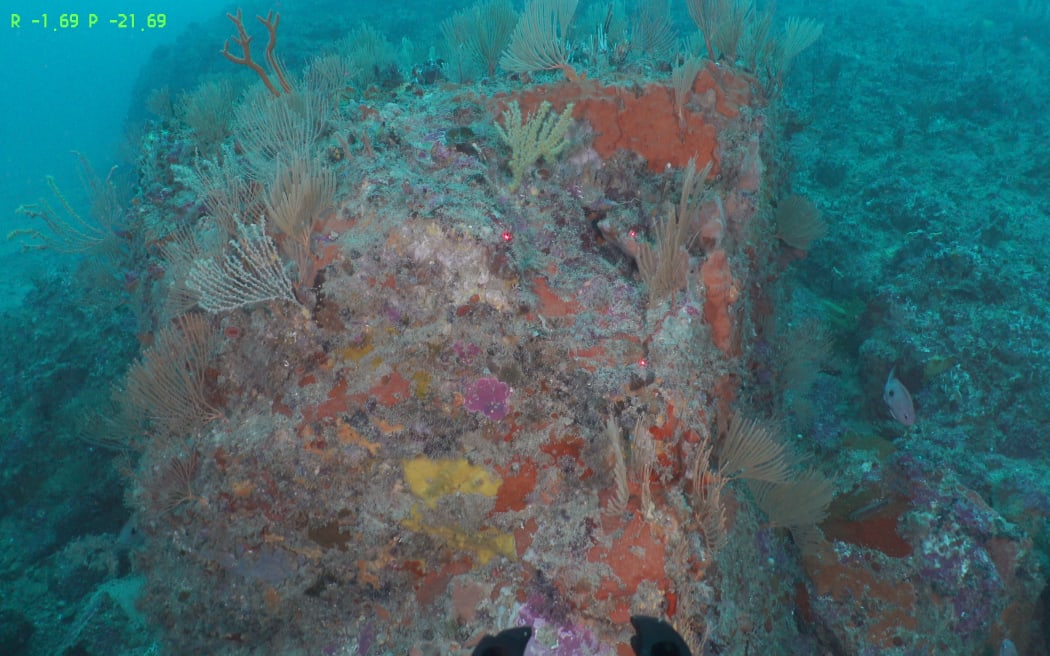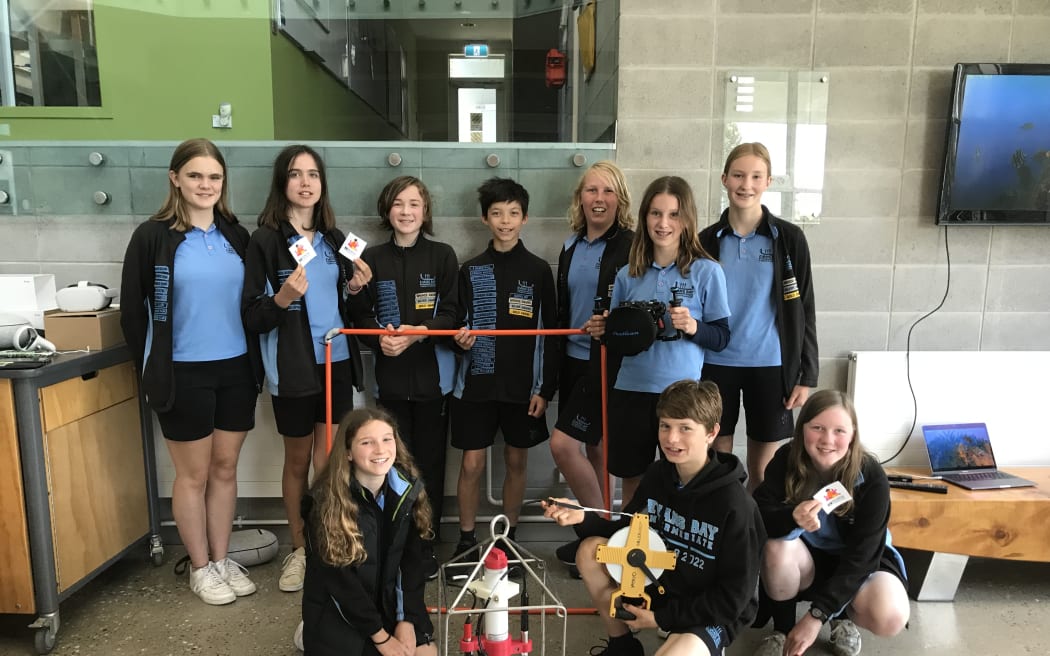A group of intermediate school students sit on colourful beanbags in a semi-circle around Professor James Bell as he introduces them to the life of a marine biologist.

The students listen to Professor James Bell give a presentation about the work of marine biologists. Photo: Claire Concannon
Follow Our Changing World on Apple Podcasts, Spotify, Stitcher, iHeartRADIO, Google Podcasts, RadioPublic or wherever you listen to your podcasts
"It's not just swimming with whales and dolphins," says James. As part of the presentation to the Evans Bay Intermediate students he introduces the subject of his research: sea sponges.
Because they can be found quite deep in New Zealand waters, he and his team will often use a remotely operated vehicle (ROV) equipped with a camera to survey for sponges. The most surprising finding for him in his years of research is just how abundant they are.

An ROV image of the seafloor showing a sponge garden. Photo: Claire Concannon
James and his group are interested in what role sponges play in the underwater ecosystem. By filtering nutrients out of the water and converting them into ‘sponge poo’ they might enrich the local area, helping other living things thrive in these sponge gardens.
But just as researchers are starting to understand the role that these sponges might play, it seems like they could be in trouble.
Listen to the episode to learn more about the secret life of sea sponges, and to tour the Wellington University Marine Ecology Lab with James and his colleague Dr Alice Rogers.

The Evans Bay Intermediate school group at the Wellington University Coastal Ecology Lab. Photo: Claire Concannon
To learn more:
- Listen to the full length episode on Our Changing World, or subscribe to the podcast to keep up to date.
- The mass sea sponge bleaching was reported on Morning Report in June 2022.
- James and colleagues published a paper on the bleaching event in December 2022, and wrote a piece for The Conservation.


